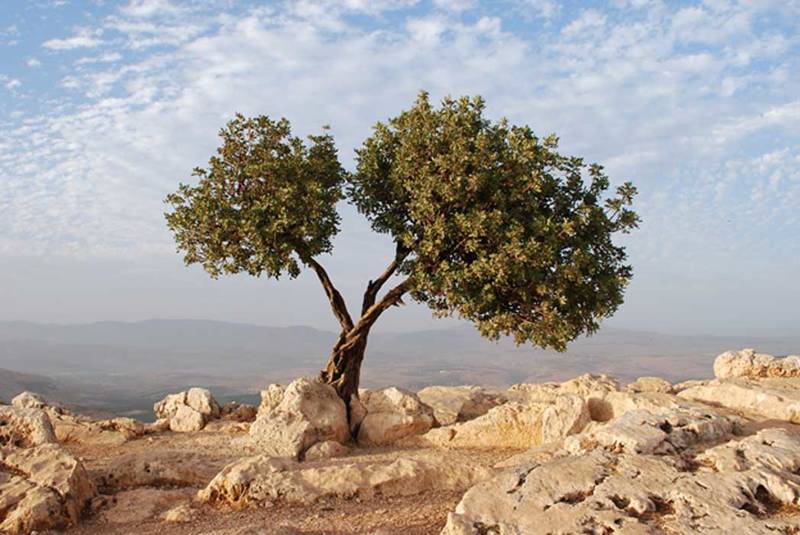Pro Israel /Pro Peace-Reflections from JStreet
10/31/2019 01:14:38 PM
Rabbi Boris Dolin
| Author | |
| Date Added | |
| Automatically create summary | |
| Summary |

I admit that I have been a bit quiet about my connection with Israel since I began working at Dorshei Emet over three years ago. While I have always had a strong connection with Haaretz, and have many stories of my time in the country, as the rabbi of this community, I felt it was very important to “test the waters” before I chose how to speak about this important part of our culture and history. We are a diverse community in so many ways, not only with Israel, but with politics, with Jewish ritual, with social values and so much else. I wanted to make sure to get to know the views of people in the community so I could know how best to speak about Israel and create a connection to the people and the place that would fit who we are.
I have always seen myself as a centrist Israel supporter, but also someone who believes deeply in the values of the Reconstructionist movement, a supporter of human rights, and of interfaith dialogue. When I said that I was going to attend the JStreet convention in Washington DC, I was surprised at some of the comments I heard. Some people had heard that Jstreet was anti Israel, or pro-BDS, others simply did not know much about the organization. While I don’t necessarily expect everyone to entirely agree with JStreet's vision, I think it is valuable that I report back on my experience at the conference and what I am reflecting on as I move forward.
The conference had over 4000 people in attendance (including about a dozen proud Canadians), with people from all denominations and from many different backgrounds. There were over 1200 student leaders, elder activists, scholars and leaders from all walks of life listening and learning from each other.
I can say with pride that every single person I met at the conference was pro-Israel, and had personal stories and experiences to share about their connection with Israel on many levels. But the overarching theme of these conversations was how people at a certain point began having trouble holding onto to their love of Israel and watching what Israeli policies were doing to Palestinians and to the core values with which Israel was founded. To have been taught that Israel is the Biblical land of the Jewish people, and then watch basic human rights being denied to other people living on this land for many was simply shameful and untenable.
One of the most inspiring parts of the conference was hearing the diversity of speakers at the panels and workshops. There were Israeli politicians, from Knesset members and mayors to former prime minister Ehud Barak who spoke strongly about how they have seen Israel move uncomfortably to the right, and how they fear this is affecting Israel’s security. We heard from North American rabbis and academics who spoke about the Biblical sources of a vision for human rights in Israel, and educators who discussed the psychology of victimization and oppression. We heard from Palestinian leaders, who proudly spoke about their dream of a Palestinian homeland in the West Bank, even as they described the need for this country to be next to a safe and stable land of Israel. And of course, we heard from many of the US presidential candidates who spoke about their policies with regard to Israel, and how the current administration has affected the peace process. (Our own Member of the Tribe, Bernie Sanders got a standing ovation, and while it was a familiar feeling to have someone who sounded like my zayde up on stage, to be honest he impressed me the least of all the candidates).
So what are my main takeaways from the conference? I know more than ever that I am not alone in having a love for Israel and also a passion for fighting for human rights and a stable and safe homeland for two peoples. I know that there is a place for me, and so many others in the Jewish community, to support yet also question and challenge what the government of Israel does, and to step back from believing that always siding with Israel no matter what is the most Jewish way to be. I can be against the occupation of the West Bank and the settlements, and also for a more stable and ethical Jewish homeland in the land of Israel. I can share a deep and passionate love for the culture, the language, the faith and the people of Israel and hope that like the love I have for a member of my family, I want Israel to always be better, and to not accept when some things do not change.
I recognize that the Montreal Jewish community is both more traditional and in general more to the right with Israel issues. Yet I think it is time that we open up to fit our liberal Reconstructionist values with our values with regards to Israel. We are a Reconstructionist synagogue, a community who holds to the belief that we should be inspired and led by Jewish values and tradition but also work to building a more ethical, inclusive and modern Judaism. The values of JStreet and other pro-Israel and pro-Peace organizations are closely aligned with the values of our movement, and I believe are values which can inspire many people of all generations who have felt that the vision of the mainstream Jewish community does not fit with theirs.
We can all know that Dorshei Emet prides itself on being a community of diverse opinions and ways of thinking about Judaism, Israel and values, and I would hope that JStreet supporters can continue to sit next to more right-leaning Israel activists and people on all sides of the spectrum as we explore our connection with Israel by continuing to share our own stories, to challenge each other, and to continue to ask questions. I hope that there will always be a place for many viewpoints when it comes to Israel, and I hope also that our conversations can continue to be rooted in the highest of Jewish ethics and values.
May this just be the beginning of the conversation.
------------
Highlights of JStreet's vision:
For too long, pro-Israel advocacy has defined this conflict in zero-sum terms, as “us versus them,” a conflict in which there can be only one winner. But being pro-Israel doesn’t require an “anti.” Israel’s long-term security actually depends on fulfilling the aspirations of the Palestinian people through a two-state solution.
We must distinguish between criticizing the policies of the government of Israel and questioning Israel’s fundamental right to exist as a Jewish homeland.
Strong and vibrant debate has characterized the Jewish tradition for millennia. That’s why we believe it is necessary to engage with those with whom we disagree.
Those who believe there is only one acceptable view on Israel — theirs —should not be allowed to impose constraints on what constitutes acceptable speech in the Jewish community. Closing the doors of the Jewish community to those who question American or Israeli policy puts the intellectual integrity and the future of our community at risk.
We believe vigorous debate about Israel and American policy will not only engage younger American Jews across the political spectrum, but will increase participation in the broader Jewish community among all generations.
These values are central to who we are as a people: the principle that you don’t treat someone the way you wouldn’t want to be treated yourself, basic notions of justice and freedom, the pursuit of peace, and tikkun olam —seeking to make the world a better place.
We believe that we must work for Israel and a Jewish community that lives up to the best of these values and traditions.
Congregation Dorshei Emet - 18 Cleve Rd., Hampstead, QC, H3X 1A6 - 514-486-9400
Home - About Us - Contact - Disclaimer
Privacy Settings | Privacy Policy | Member Terms
©2025 All rights reserved. Find out more about ShulCloud



